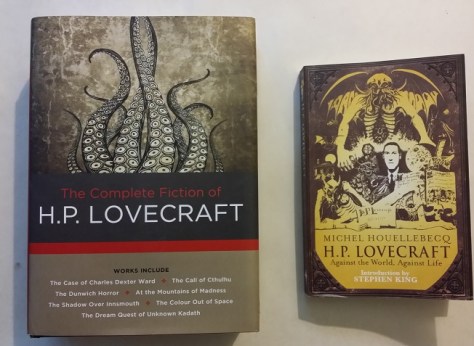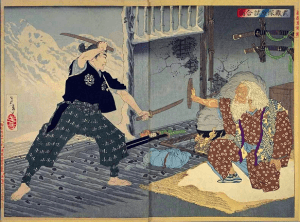
One of the few writing books I keep on my desk is Stephen King’s On Writing. It’s really two separate works. The second half offers one of the most concise and useful guides to clear, lively writing ever written.
But it begins with a short bio of the author, a life story I was not previously aware of. Despite (because of?) his success, Mr. King grappled with both alcohol and drug addiction. Though he didn’t overcome these problems until a forceful intervention by fed-up friends and family, he did deal with his addictions the best he could. As he puts it, a part of him recognized the problem: “It began to scream for help in the only way it knew how, through my fiction and through my monsters.” (On Writing, p. 96)
The Shining and The Tommyknockers express how that part of his psyche regarded his addiction. But Misery, in my opinion, is a more profound and revealing image of addiction. Annie Wilkes, the psychotic nurse who both idolizes and tortures the protagonist, symbolizes cocaine, which makes you feel good at first but extracts a heavy toll.
Notice that the protagonists in all three novels are writers. Hmm.
Other authors have imagined monsters as symbols for their deepest wounds. In The Recognition of H.P. Lovecraft, a marvelous account of Lovecraft’s posthumous rise to celebrity, S. T. Joshi observes that Lovecraft’s monsters “were not to be taken literally but as symbols for the philosophical conceptions he sought to convey.” (p. 283) Lovecraft’s gods and demons have no regard for puny humans. A self-described man of “extreme sensitiveness,” Lovecraft long nursed an aching nostalgia for lost innocence and shattered ideals, victims of an impersonal, cold universe. His tales of isolation, despair, and creeping terror reflect his view of the uncaring forces that control human destiny.
A similar dynamic is evident in Rosemary’s Baby, Ira Levin’s classic. Levin did not believe in devils, but his most famous novel uses Satan as a symbol of the real evil people commit out of greed. Rosemary is not only lied to by people she trusts, but is betrayed by her own husband, who allows her to be raped for his own personal gain. Treachery is the ultimate evil, which Dante believed to merit punishment in the ninth circle of hell. I imagine Levin would have agreed.

